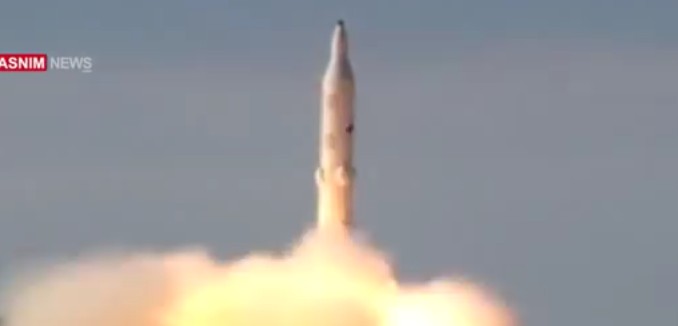Iran continues to defy existing sanctions on its nuclear and ballistic missile programs as nuclear negotiations proceed in Vienna. In a report published Friday in The Weekly Standard, Emanuele Ottolenghi and Benjamin Weinthal, fellows at the Foundation for Defense of Democracies, cited a German intelligence agency that recently reported on Iran’s continuing efforts to acquire prohibited technology.
The first report was released last month by the U.N. panel of experts in charge of reporting compliance with U.N. Security Council resolutions regarding Iran. The panel noted that U.N. member states had not reported significant violations of U.N. sanctions and speculated as to why: either Iran was complying, or countries did not wish to interfere with negotiations.
The second report, released last week by Germany’s domestic intelligence agency, is less ambiguous. The agency, the Federal Office for the Protection of the Constitution, confirmed to us that Iran continues to seek illicit technology for its nuclear and ballistic missiles programs.
Iran has had a long history of trying to obtain nuclear technology from German companies, particularly by seeking ways to transport merchandise in circumvention of international sanctions. Since November 2013, Tehran has sought industry computers, high-speed cameras, cable fiber, and pumps for its nuclear and missile program. It appears that Iran’s readiness to negotiate does not reflect any substantive policy change. Rather, it is a diplomatic tactic retreat forced by economic distress, not a strategic rethinking of its priorities.
Ottolenghi and Weinthal write that Iran has “a long history of trying to obtain nuclear technology from German companies.” However, despite reports in May that the Czech Republic blocked an Iranian purchase of compressors that can be used for centrifuges, the U.N. Panel of Experts noted last month that Iranian violations have generally been ignored by the West. Similarly, in June, the Government Accountability Office reported that the State Department was lax in reporting on and enforcing existing sanctions on Iran.
According to Ottolenghi and Weinthal, this failure to hold Iran accountable for its violations of sanctions “suggests a lack of resolve on the part of Western nations, and their willingness to downplay all but the most egregious violations.” This begs the question, “If Western powers are reluctant to penalize Iran for trying to evade sanctions because they’re afraid of spoiling the negotiations, what will happen in the future when Western powers have even more invested in preserving an agreement?”
[Photo: ali javid / YouTube ]




